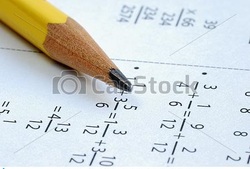This section requires Javascript.
You are seeing this because something didn't load right. We suggest you, (a) try
refreshing the page, (b) enabling javascript if it is disabled on your browser and,
finally, (c)
loading the
non-javascript version of this page
. We're sorry about the hassle.
8 solutions
Nice way to understand...
5 5 6 = ( 5 2 ) 2 8 = ( 2 5 2 ) 1 4 > 5 6 5
And this is true as:
-
2 5 2 > 5 6
-
1 4 > 5
5 5 6 > 5 6 5 ⟺ 5 1 / 5 > 5 6 1 / 5 6 , which is true, since
x 1 / x is strictly decreasing in ( e , + ∞ ) , since
( x 1 / x ) ′ = − x x 1 − 2 ( lo g ( x ) − 1 ) < 0 for x > e .
if the two numbers are to be compared with base and power being the same numbers, the number with higher power is larger than the number with lower power. EXCEPTIONS: A. 2^3 and 3^2( here 3^2 is larger) B. 2^4 and 4^2 (here both are equal)
5 5 6 in base 5 is 57 digits long. How many digits 5 6 5 is going to be in base 5? Not that many.
5 5 6 = ( 5 2 ) 2 8 = 2 5 2 8 = ( 5 4 ) 1 4 or ( 2 5 2 ) 1 4 = 6 2 5 1 4
since 625 > 56 and 14 > 5, therefore
6 2 5 1 4 is much greater than 5 6 5
5 5 6 > 5 6 5
5^56 = 25^28 = 125^14 > 56^5
Which is Greater?
A. 5^56 =
1.38777878 E+39 =
1387778780781445675529539585113525390625
or
B. 56^5 =
5.50731776 E+8 =
550731776
Final Answer: A is greater than B.

5 6 5 < 1 2 5 5 = 5 3 × 5 = 5 1 5 < 5 5 6 ⇒ 5 5 6 > 5 6 5